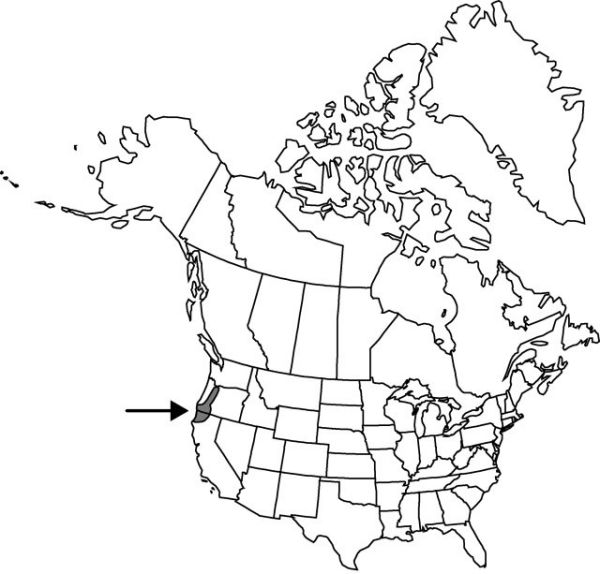Difference between revisions of "Lilium washingtonianum subsp. purpurascens"
Novon 12: 258. 2002.
FNA>Volume Importer |
FNA>Volume Importer |
(No difference)
| |
Revision as of 21:41, 16 December 2019
Bulbs variable, subrhizomatous to ± ovoid, 3–10 × 4.4–11.7 cm, 0.3–0.9(–1.4) times taller than long; scales variable, usually notched with 2(–3) poorly defined segments, some clearly 2-segmented or unsegmented, longest 3.3–11.9 cm. Stems to 1.7 m. Leaves in 1–8 whorls or partial whorls, 3–15 leaves per whorl, usually ascending and occasionally nearly clasping stem, rarely horizontal and drooping at tips, 3.7–12.3 × 0.9–4.7 cm, 2–6.5 times longer than wide; margins undulate. Flowers: sepals and petals recurved 2/3 along length from base, mostly or entirely white but aging deep pink or lavender, sometimes with short yellowish stripe extending from basal median nectaries; sepals usually if obscurely purplish adaxially, (6.1–)6.7–9.5 × 0.9–1.6 cm; petals (6.1–)6.6–9.5 × 1.1–1.9 cm; anthers cream, sometimes spotted minutely with magenta on abaxial surface, becoming yellow; pollen pale yellow to occasionally yellow. Capsules usually with 6 longitudinal ridges, 2.8–5.8 × 1.6–2.9 cm, 1.3–2.3 times longer than wide. Seeds 144–231. 2n = 24.
Phenology: Flowering summer (mid Jun–mid Aug).
Habitat: Forest openings, chaparral, burned clearcuts, roadsides
Elevation: 300–1700 m
Discussion
Subspecies purpurascens replaces the Sierran subsp. washingtonianum near Mount Shasta in Siskiyou County, California, and extends west through the Klamath Mountains and north through the Cascade ranges to Mount Hood in Clackamas County, Oregon. In addition to the characters mentioned in the key, subsp. purpurascens is also distinguished from subsp. washingtonianum by more compact bulbs with longer scales.
Selected References
None.
